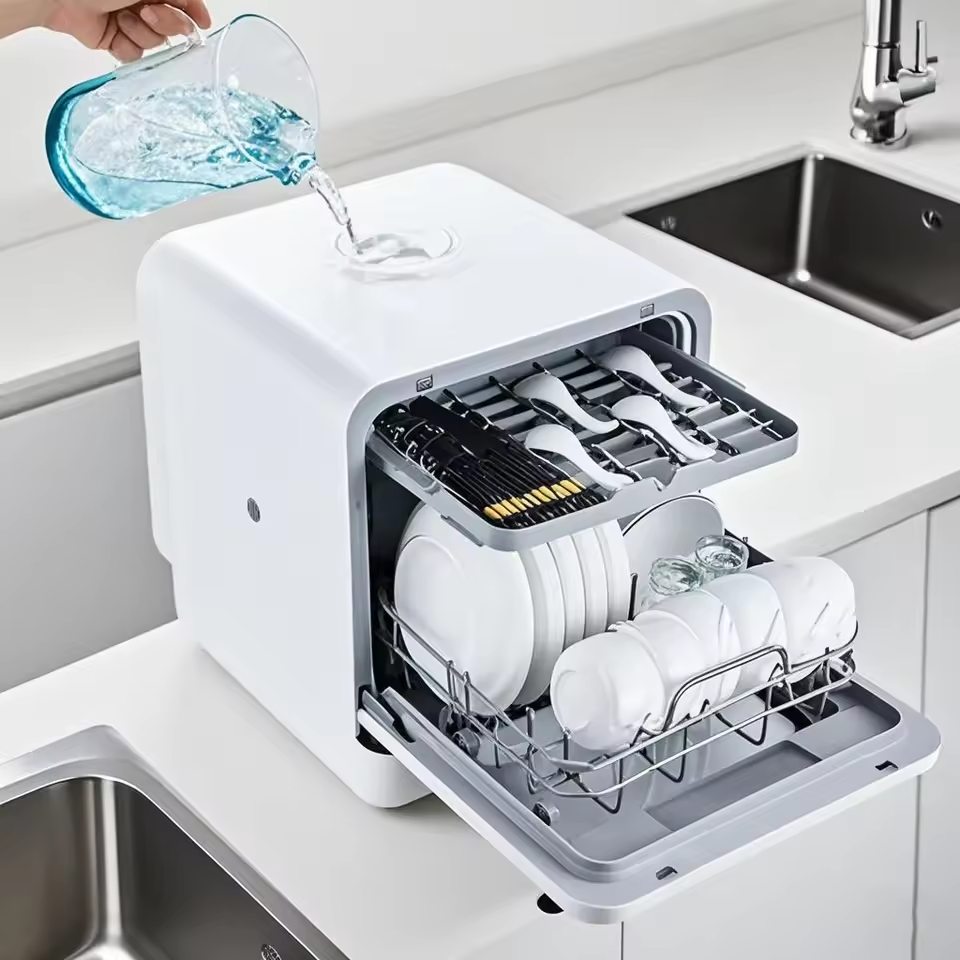Why Regular Dishwasher Cleaning is Important
Regularly clean dishwasher is essential for maintaining its efficiency. Over time, food particles, grease, and detergent residue build up. This can clog filters, spray arms, and other parts, reducing performance.
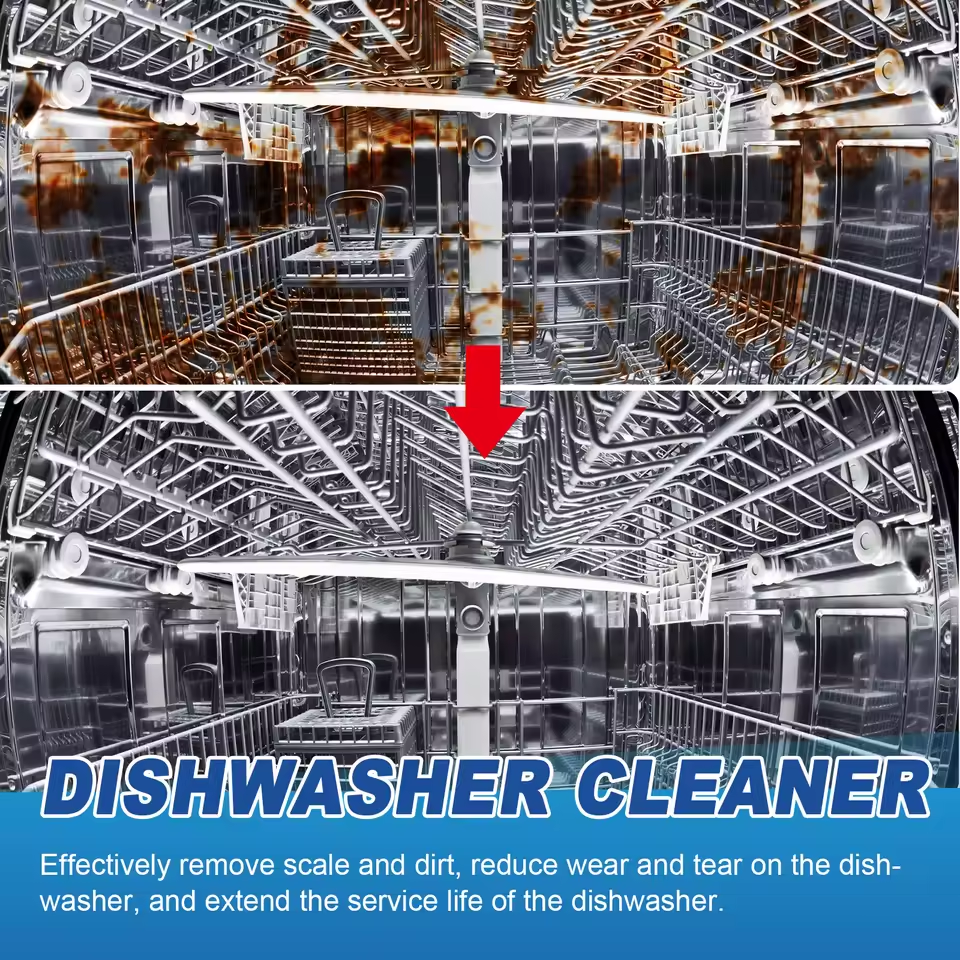
A clean dishwasher ensures better cleaning of your dishes. When buildup occurs, water flow can be restricted, leaving dishes dirty. Regular maintenance prevents this and keeps your appliance functioning optimally.
Cleaning also extends the life of your dishwasher. Buildup can lead to wear and tear, causing components to fail prematurely. Routine cleaning minimizes these risks and saves you from costly repairs.
Additionally, a dirty dishwasher can harbor bacteria and unpleasant odors. Regular cleaning eliminates this problem, ensuring a hygienic environment for your dishes. It also prevents the spread of germs onto your utensils and plates.
To sum up, regular cleaning of your dishwasher improves its efficiency, longevity, and hygiene. By making it a habit, you can avoid major issues and enjoy sparkling clean dishes every time.
Signs That Your Dishwasher Needs Cleaning
Recognizing the signs of a dirty dishwasher is important for optimal performance. Here are some common indicators:
- Dishes Come Out Dirty: If your dishes have residue or food particles after a cycle, it’s time to clean.
- Foul Odors: A lingering bad smell often signals trapped food or grease inside the dishwasher.
- Water Pooling: Pooled water at the bottom means the filter might be clogged and needs cleaning.
- Visible Buildup: Lime scale, grease, or soap scum on the interior walls or racks indicates cleaning is overdue.
- Reduced Efficiency: If the dishwasher takes longer to clean or performs poorly, cleaning may restore its function.
- Clogged Spray Arms: Blocked spray arms prevent proper water flow, leading to poorly cleaned dishes.
Regularly checking for these signs ensures your dishwasher stays effective. Cleaning promptly avoids bigger issues later.
Essential Supplies for Cleaning a Dishwasher
Cleaning your dishwasher effectively requires the right tools and supplies. Using proper items ensures a thorough job and protects your appliance from damage. Below is a list of essential supplies you’ll need:
- Dishwashing Gloves: Protect your hands from dirt, grease, and cleaning chemicals.
- Soft Brush or Sponge: Useful for scrubbing out residue without scratching surfaces.
- Toothbrush or Small Cleaning Brush: Perfect for reaching tight spaces and cleaning spray arms and filters.
- White Vinegar: A natural cleaning agent that dissolves grease and removes smells.
- Baking Soda: Helps scrub away stains and deodorizes the dishwasher.
- Microfiber Cloth: Ideal for wiping down the dishwasher’s interior and exterior without leaving streaks.
- Dish Soap: Use for light cleaning tasks and removing grease manually.
- Toothpicks or Pliers: Useful for dislodging debris from small holes, especially in spray arms.
- Bucket or Container: Holds water for rinsing parts like the filter.
Having these items on hand ensures you can handle every aspect of dishwasher cleaning. Gather these tools before you start the cleaning process to make the job easier and quicker. Regularly using these supplies keeps your dishwasher efficient, hygienic, and free from buildup.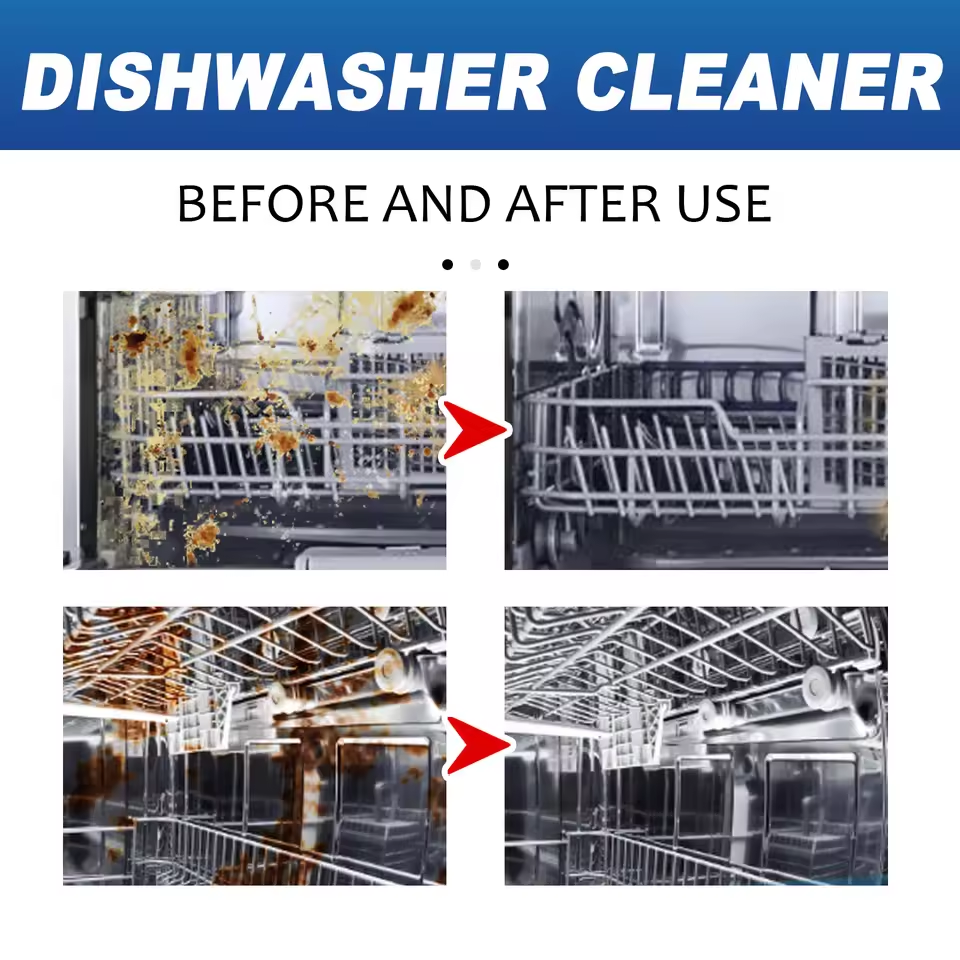
Step-by-Step Guide to Clean Dishwasher
Cleaning your dishwasher step-by-step ensures thorough cleaning and optimal performance. Follow this guide to clean it efficiently.
Cleaning the Filter
- Start by removing the filter from the dishwasher. This is usually located at the bottom.
- Rinse the filter under warm water to remove debris and buildup.
- Use a small brush or toothbrush to scrub stubborn grease or food particles.
- Ensure the filter is completely clean before placing it back.
Cleaning the Spray Arms
- Take out the spray arms from your dishwasher if they are removable.
- Check the holes for blockages caused by food or mineral buildup.
- Use a toothpick or small tool to clear blocked holes.
- Wash the arms with warm, soapy water and rinse thoroughly.
- Reattach the spray arms once they are clean and dry.
Wiping Down the Interior
- Mix dish soap with warm water to prepare a cleaning solution.
- Dip a soft sponge or microfiber cloth into the solution and wipe the inside walls.
- Focus on edges, shelves, and places where grease or residue accumulates.
- For stubborn stains, use baking soda and gently scrub.
- Wipe down the door edges and rubber seals thoroughly.
Running a Cleaning Cycle with Vinegar or Baking Soda
- Place a bowl filled with white vinegar on the top rack of your dishwasher.
- Run a hot water cycle to remove grease, smells, and mineral deposits.
- Sprinkle baking soda across the bottom of the dishwasher and run another hot cycle.
- This step eliminates odors and leaves the interior spotless.
By following these steps, you can effectively clean dishwasher. Regular cleaning avoids bigger problems and enhances its efficiency.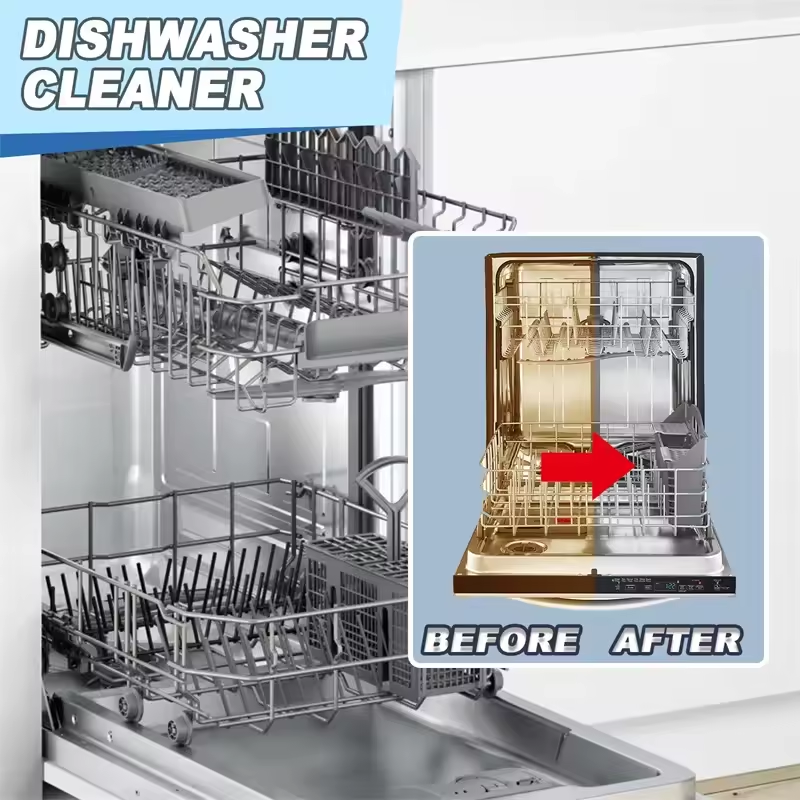
Best Practices for Preventing Build-Up in Your Dishwasher
Preventing build-up in your dishwasher ensures better performance and extends its lifespan. Follow these best practices:
- Scrape Food Residue Off Dishes: Remove leftovers from plates before placing them in the dishwasher.
- Run Hot Water Before Starting: Let your sink’s hot water run briefly to assist with cleaning cycles.
- Use the Right Detergent: Always choose a detergent suitable for your specific dishwasher model.
- Avoid Overloading: Properly space dishes to allow water and detergent to reach every surface.
- Clean the Filter Regularly: Rinse and scrub the filter at least once a month to remove debris.
- Inspect the Spray Arms: Check the spray arms for blockages weekly and clear them if needed.
- Run a Cleaning Cycle Monthly: Use vinegar or a dishwasher cleaner monthly to remove grease and scale.
- Dry Damp Areas After Use: Wipe down seals and the dishwasher door to prevent mold or mildew growth.
- Maintain Water Softener Levels: For hard water areas, ensure the water softener is topped up.
- Avoid Rinsing with Cold Water: Ensure dishes are rinsed with warm water if necessary before placing them in the dishwasher.
By adopting these practices, you can minimize residue and keep your clean dishwasher. These habits also reduce the need for frequent deep cleaning and help your appliance run efficiently.
Natural vs. Commercial Dishwasher Cleaning Solutions
Choosing between natural and commercial cleaning solutions depends on your preferences and dishwasher needs. Both options provide effective cleaning, but they have different advantages and drawbacks.
Benefits of Natural Cleaning Solutions
- Eco-Friendly: Natural cleaners like vinegar and baking soda are biodegradable and safe for the environment.
- Non-Toxic: These solutions are chemical-free, making them safe for families and pets.
- Cost-Effective: Common pantry items like vinegar and baking soda are affordable and versatile.
- Simple to Use: Natural cleaners require minimal preparation and no exposure to strong chemicals.
Benefits of Commercial Cleaning Solutions
- Specialized Formulas: These cleaners target specific issues like mineral buildup or tough stains.
- Convenience: Ready-to-use products save time and effort.
- Thorough Cleaning: Many commercial options remove deep-seated grease and odors effectively.
- Wide Availability: Dishwasher cleaning products can be found at most stores.
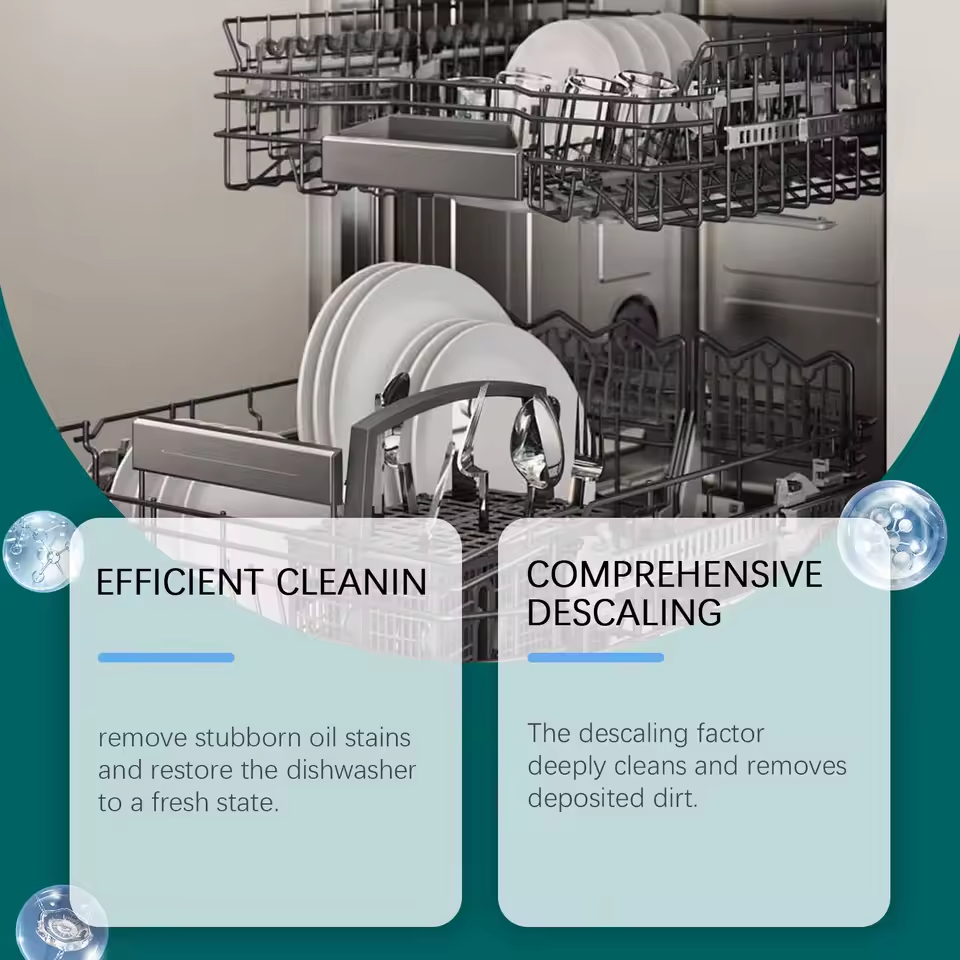
Factors to Consider When Choosing
- Dishwasher Condition: Use natural solutions for light cleaning and commercial ones for heavy buildup.
- Environmental Impact: Opt for natural methods if you prioritize eco-friendly practices.
- Budget: Go for commercial products if cost is less of a concern.
- Personal Preferences: Choose based on convenience, results, and comfort with ingredients.
Consider alternating between natural and commercial solutions for balanced dishwasher care. Regular use of either option ensures a clean and efficient appliance.
When to Consider Professional Maintenance for Your Dishwasher
Even with regular cleaning, some dishwasher issues may require professional help. Knowing when to contact a professional ensures your appliance stays in good condition.
Persistent Operational Problems
- Difficulty Draining Water: If pooling water remains after cycles, internal drainage issues may exist.
- Unusual Noises: Loud or strange sounds might signal pump, motor, or valve damage.
- Ineffective Cleaning: Dishes remain dirty even after thorough cleaning and maintenance efforts.
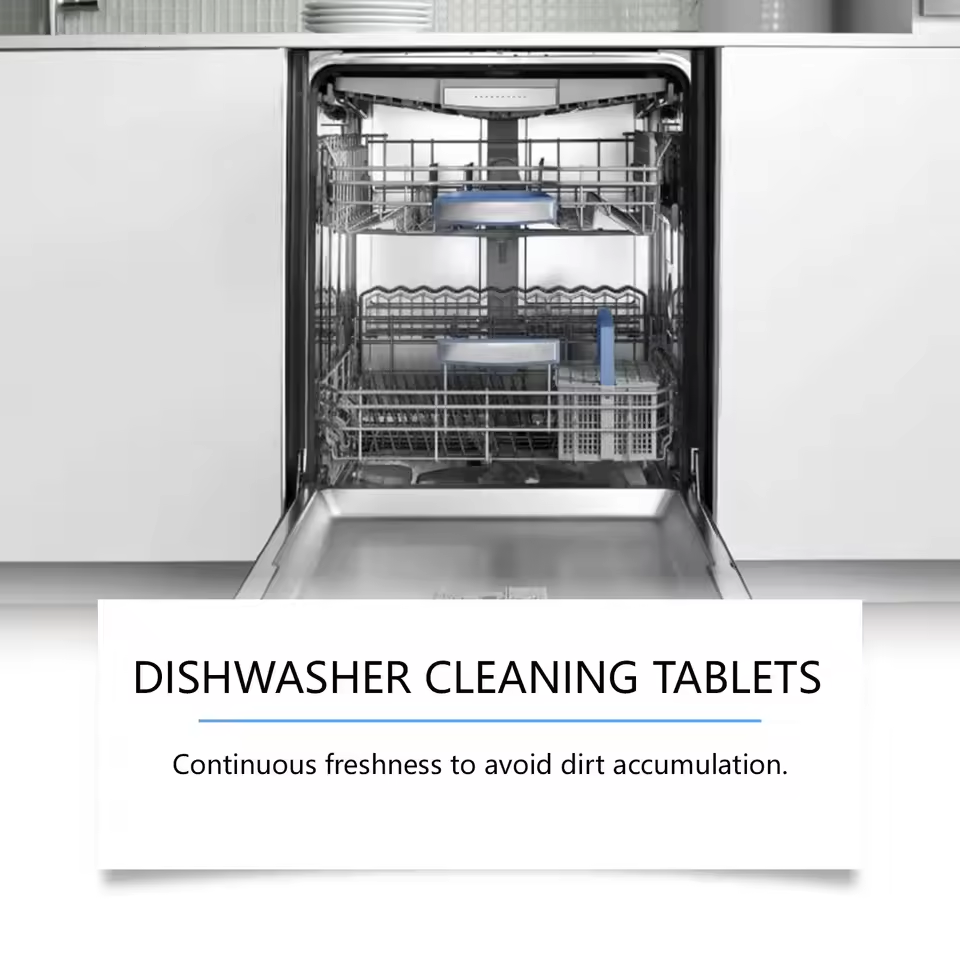
Malfunctions Beyond DIY Repairs
- Electrical Issues: If the dishwasher fails to start, consult a certified technician to check wiring.
- Door Seal Leaks: Leaking water around the door suggests a worn-out gasket that needs expert replacement.
- Control Panel Errors: Unresponsive buttons or blinking error codes often require professional attention.
When Routine Cleaning Fails
- Severe Mineral Buildup: Thick lime scale or hard water deposits might need home service for descaling.
- Persistent Odors: Lingering smells despite cleaning may indicate hidden mold or debris buildup.
Recommended Maintenance Intervals
- Annual Inspection: Schedule yearly check-ups to ensure optimal performance and address small concerns.
- Warranty Obligations: Regular professional maintenance may keep manufacturer warranties valid, avoiding additional future costs.
Addressing these issues early helps to avoid expensive repairs or potential replacements. Professional maintenance also ensures your dishwasher stays efficient and reliable.
